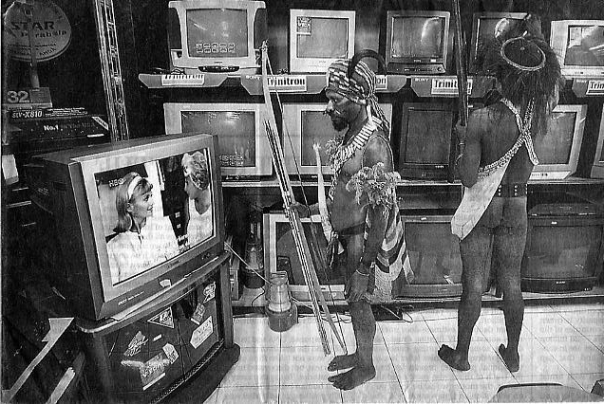I recently came across the cluetrainplus10 project, and it sounded so cool, I just had to jump on board. I am one of the 95 bloggers from around the world who are publishing blog entries on the theses making up the Cluetrain Manifesto on its 10-year anniversary. The project was organized by Keith McArthur, the social media guy at Rogers and Fido (large Canadian telecom companies).
For those of you who aren’t familiar with it, the Cluetrain Manifesto was a collection of 95 theses put forward in 1999/2000 as a call-to-action to all businesses. It basically aimed to bring the corporations’ attention to the fact that their markets had become increasingly global and connected, and where every single consumer had a loud voice, thanks to the internet. The book based on these 95 theses is available online for free. It created quite the stir when it was published, and although controversial, I feel that most of the theses are as valid today as they were ten years ago.
The thesis I picked to write about is:
#37: If their (companies’ organizational) cultures end before the community begins, they will have no market.
The very first liberal arts course I took in university was an Intro to International Relations class I took at UBC as a summer course. Coming from McGill Engineering and the cold harsh winter of Montreal, the whole experience was overall refreshing, to say the least. When our professor told us to write a paper on globalization, I attached this picture from a newspaper clipping I’d found earlier that summer:

As someone who lives, breathes and thinks marketing, this was quite fascinating to me. You had tribesmen from New Guinea in a TV store that was showing Grease on one of its biggest TVs. There was SO MUCH wrong with that entire setting!
Using some marketing lingo (“buzzwords” and “fluff,” as my engineer friends refer to them), if you want to be competitive today, you don’t just have to ‘cater’ your ‘message’ to your ‘target audience’ anymore. You have to take your entire organizational culture and blend your (target) community’s culture into it.
Now this might sound pretty obvious to a lot of us, but you would be surprised how many of my clients take simple common-sense marketing and communications advice for granted. The fact that simple things like the language (both literal and figurative) of the company’s external communications material needs to be that of the community. That the community’s culture should dictate their own organizational cultures.

A couple of years ago, I was researching a conference paper for the IEEE. The Pulp & Paper industry was in turmoil. Why weren’t young engineering graduates interested in it as a possible career option? The more we interviewed recent/almost graduates, the more we realized that to them, the industry just sounded dull and boring. There were quite a lot of interesting opportunities in the industry, but it never appeared to be ‘sexy’ enough to the recent/almost graduates. And it took us countless fancy graphs and diagrams to convey this very simple message to the industry.
Now I tried my hardest to stay away from the F-word, but there really isn’t any way for me to fully illustrate my point without bringing Facebook into the equation. This whole project revolves around social networking, afterall.
Who remembers 2004? When Facebook was all new and elite (“Oh you didn’t go to an Ivy League school? Sorry, you can’t join… yet.”) Or later on when countless “OMG, Facebook is opening up to EVERYONE?!!!” groups were created. In ’09, it sounds ridiculous to have a social networking website but not have it open to ‘everyone’, doesn’t it?
Well before 2009 happened, Facebook could afford to stick to its Silicon Valley jargon and outlook on life. Today, not so much. Whenever Facebook had any of its early PR disasters, I would read all the panic coverage with a smile.
The fact of the matter is that too many Silicon Valley entrepreneurs keep forgetting who their ‘community’ actually is, their online ‘market’ who doesn’t live in the vicinity of their offices. They keep forgetting that the majority of their users are NOT uber-tech savvy. They are paranoid about their privacy thanks to media’s over-coverage of identity theft and public slander. And they don’t care how ‘cool’ developer integration is. In fact, they don’t even know what developers are.
Facebook has come a long way since the days of the photo uploader “thinger”. The site content’s jargon has changed, and they have realized that the only way they can keep their openness and transparency, while appealing to the mass markets is by integrating their community’s culture into their own, not vice versa.
As much as you might hate Wall-mart, you have to agree… sticking to this thesis is one of the reasons why they are successful!
Note: Image via Flickr